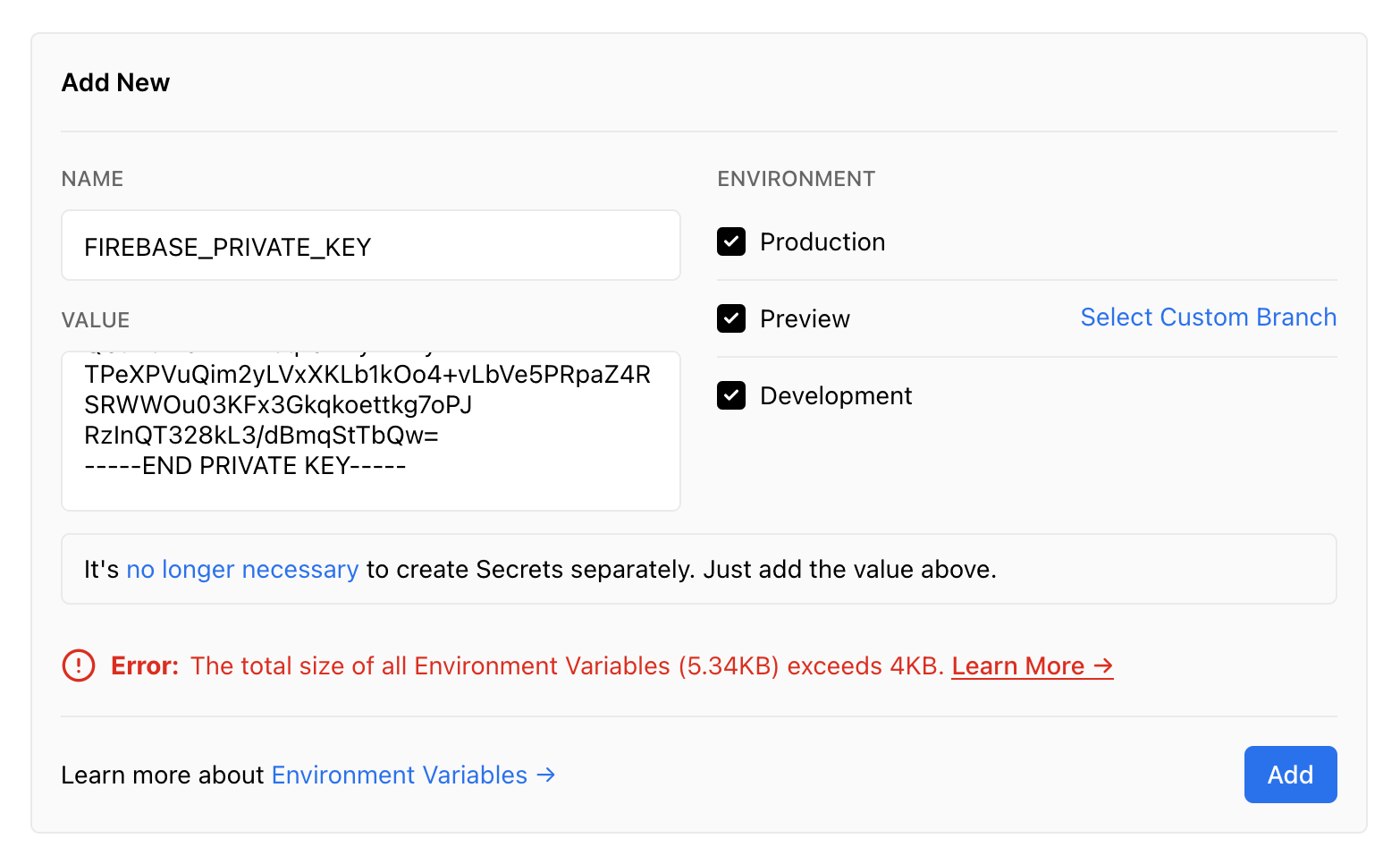next-secrets
v0.0.20
Published
Extended secrets / env management for next serverless.
Readme
next-secrets
Extended secrets / env management for next serverless.
Inspiration
If you've ever seen this message on Vercel, you'll know that there's a limitation on AWS Lambda that caps total env size at 4K.

Vercel has a support article as a workaround which suggests an endpoint architecture to pull and load env vars.
https://vercel.com/support/articles/how-do-i-workaround-vercel-s-4-kb-environment-variables-limit
This repo is an implementation of this.
Installation
1. Install the repository in your next project:
yarn add next-secrets
2. You'll need a Redis server to store/load secrets from, we highly recommend Upstash for this
3. Add the required variables to your .env
NEXTSECRETS_REDIS_URL=...your redis url...
NEXTSECRETS_TOKEN=...make up a secret to use...If you want to force next-secrets to use a specific env, set the env var:
NEXTSECRETS_ENV=previewNote: By default, next-secrets will assign the env based on the following order:
- process.env.NEXTSECRETS_ENV
- process.env.VERCEL_ENV
- process.env.NODE_ENV
4. Run secrets cache
This will persist your config for next to use, if you don't run this you'll receive an error.
5. Wrap any API endpoints that you need access to these vars:
# /pages/api/myendpoint.ts
import { withSecrets } from "next-secrets"
export default withSecrets((secrets) => {
return async (req, res) => {
// ... do something with secrets.xyz
}
})And that's it! Your endpoints will have access to the shared secrets.
Admin Interface
next-secrets comes with an admin interface for controlling development, preview, and production environments.

To install, first add a file secrets.ts (or secrets.js) in pages/api:
# /pages/api/secrets.tsx
import { handler } from "next-secrets"
export default handlerThen, start your next server and head over to http://localhost:3000/api/secrets to configure your environments.
Note: This page is only available in development env
